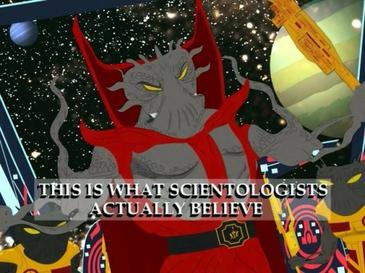is there enough evidence that Richard Dawkins exists?
category: general [glöplog]
i rate your contribution to the global literature on farting, bigtime
isn't that enough?
isn't that enough?
guys anyway calm down - nothing's going to happen
real heavy-duty nerds have always been annoying, and will continue to be
secondly, look at Dawkins saying things that have been said for hundreds of years, arguing against arguments that have also been argued for hundreds of years - new atheism isn't a complete politics with answers, it isn't even practical or feasible, and nobody should be claiming that it is
what's left is the idea that a small group of people are putting forward a mental stance that anyone could come up with by thinking certain way. if this is true, then it is a mental occurrence that no longer needs Richard Dawkins
geddit?
real heavy-duty nerds have always been annoying, and will continue to be
secondly, look at Dawkins saying things that have been said for hundreds of years, arguing against arguments that have also been argued for hundreds of years - new atheism isn't a complete politics with answers, it isn't even practical or feasible, and nobody should be claiming that it is
what's left is the idea that a small group of people are putting forward a mental stance that anyone could come up with by thinking certain way. if this is true, then it is a mental occurrence that no longer needs Richard Dawkins
geddit?
ham: Just wondering, what would be "a solid base for justice, ethics, society"?
Here's a segment from an old man's autobiography, depicting a "mystical illumination" (old man's own description) in 1901 which influenced his values for the rest of his life (from imperialist to pacifist):
"Suddenly the ground seemed to give way beneath me,
and I found myself in quite another region.
Within five minutes I went through
some such reflections as the following:
the loneliness of the human soul is unendurable;
nothing can penetrate it except the highest intensity
of the sort of love that religious teachers have preached;
whatever does not spring from this motive is harmful,
or at best useless;
it follows that war is wrong,
that a public school education is abominable,
that the use of force is to be deprecated,
and that in human relations one should penetrate
to the core of loneliness in each person and speak to that."
Sure, you really don't need any religion to explain that (even though you'd find lots of similar descriptions in various religious literature), but if you look into naturalist explonations, then what else is there, beside hallucination (a word I saw Dawkins use in a debate to undermine someone else's most dearest and sacred experiences), some sort of a chemical imbalance in the brain - nothing "really real" anyway. I guess the poor old man, to whom Dawkins owes many of his arguments, built his values on a mere hallucination and the extatic period that followed. Just like some gullible jesus freak.
Here's a segment from an old man's autobiography, depicting a "mystical illumination" (old man's own description) in 1901 which influenced his values for the rest of his life (from imperialist to pacifist):
"Suddenly the ground seemed to give way beneath me,
and I found myself in quite another region.
Within five minutes I went through
some such reflections as the following:
the loneliness of the human soul is unendurable;
nothing can penetrate it except the highest intensity
of the sort of love that religious teachers have preached;
whatever does not spring from this motive is harmful,
or at best useless;
it follows that war is wrong,
that a public school education is abominable,
that the use of force is to be deprecated,
and that in human relations one should penetrate
to the core of loneliness in each person and speak to that."
Sure, you really don't need any religion to explain that (even though you'd find lots of similar descriptions in various religious literature), but if you look into naturalist explonations, then what else is there, beside hallucination (a word I saw Dawkins use in a debate to undermine someone else's most dearest and sacred experiences), some sort of a chemical imbalance in the brain - nothing "really real" anyway. I guess the poor old man, to whom Dawkins owes many of his arguments, built his values on a mere hallucination and the extatic period that followed. Just like some gullible jesus freak.
hempest: Here is the whole quote... for clarity.
"[Russell was present when the wife of his collaborator Alfred North Whitehead was undergoing an unusually severe bout of pain due to heart trouble. He was 29 at the time, and in the following excerpt from his autobiography he described the effect this experience had on him.]
She seemed cut off from everyone and everything by walls of agony, and the sense of the solitude of each human soul suddenly overwhelmed me. Every since my marriage, my emotional life had been calm and superficial. I had forgotten all the deeper issues, and had been content with flippant cleverness. Suddenly the ground seemed to give way beneath me, and I found myself in quite another region...
At the end of those five minutes, I had become a completely different person. For a time, a sort of mystic illumination possessed me. I felt that I knew the inmost thoughts of everybody that I met in the street, and though this was, no doubt, a delusion, I did in actual fact find myself in far closer touch than previously with all my friends, and many of my acquaintances. Having been an Imperialist, I became during those five minutes a pro-Boer and a Pacifist. Having for years cared only for exactness and analysis, I found myself filled with semi-mystical feelings about beauty, with an intense interest in children, and with a desire almost as profound as that of the Buddha to find some philosophy which should make human life endurable. A strange excitement possessed me, containing intense pain but also some element of triumph through the fact that I could dominate pain, and make it, as I thought, a gateway to wisdom. The mystic insight which I then imagined myself to possess has largely faded, and the habit of analysis has reasserted itself. But something of what I thought I saw in that moment has remained always with me, causing my attitude during the first war, my interest in children, my indifference to minor misfortunes, and a certain emotional tone in all my human relations."
And, please, do not try to make more argumentum ad hominem.
"[Russell was present when the wife of his collaborator Alfred North Whitehead was undergoing an unusually severe bout of pain due to heart trouble. He was 29 at the time, and in the following excerpt from his autobiography he described the effect this experience had on him.]
She seemed cut off from everyone and everything by walls of agony, and the sense of the solitude of each human soul suddenly overwhelmed me. Every since my marriage, my emotional life had been calm and superficial. I had forgotten all the deeper issues, and had been content with flippant cleverness. Suddenly the ground seemed to give way beneath me, and I found myself in quite another region...
At the end of those five minutes, I had become a completely different person. For a time, a sort of mystic illumination possessed me. I felt that I knew the inmost thoughts of everybody that I met in the street, and though this was, no doubt, a delusion, I did in actual fact find myself in far closer touch than previously with all my friends, and many of my acquaintances. Having been an Imperialist, I became during those five minutes a pro-Boer and a Pacifist. Having for years cared only for exactness and analysis, I found myself filled with semi-mystical feelings about beauty, with an intense interest in children, and with a desire almost as profound as that of the Buddha to find some philosophy which should make human life endurable. A strange excitement possessed me, containing intense pain but also some element of triumph through the fact that I could dominate pain, and make it, as I thought, a gateway to wisdom. The mystic insight which I then imagined myself to possess has largely faded, and the habit of analysis has reasserted itself. But something of what I thought I saw in that moment has remained always with me, causing my attitude during the first war, my interest in children, my indifference to minor misfortunes, and a certain emotional tone in all my human relations."
And, please, do not try to make more argumentum ad hominem.
this whole thread is an ad hominem fallacy wrapped in a farce of a straw man fallacy, anybody who does not respect these rules has not understood the OP and will be thrown out without any porridge
@forestcre: Probably this thread does not exist. So don't worry and enjoy your life.
ham: Thanks for the rest of the quote. Nothing really new there though, apart from some clarifications and minor distancing.
Russell had a profound experience ("that moment has remained always with me"), which, due to it's charasteristics, can be called a mystical experience. I'm really interested how it would be explained within naturalistic worldview. Russell doesn't seem to do that, even though he shows some skepticism ("mystic insight which I then _imagined_ myself to possess.") Since Dawkins has been eager to dismiss other people's mystical experiences by saying they are mere hallucinations, I supposed he would do it in Russell's case aswell.
So in what way I was making a argumentum ad hominem? What person or belief I was attacking falsely? You mean the provocation at the end? It's a humorous guess, not a claim.
How about that "solid base for justice, ethics, society" I asked you to clarify. I'm always interested in unfounded claims.
Russell had a profound experience ("that moment has remained always with me"), which, due to it's charasteristics, can be called a mystical experience. I'm really interested how it would be explained within naturalistic worldview. Russell doesn't seem to do that, even though he shows some skepticism ("mystic insight which I then _imagined_ myself to possess.") Since Dawkins has been eager to dismiss other people's mystical experiences by saying they are mere hallucinations, I supposed he would do it in Russell's case aswell.
So in what way I was making a argumentum ad hominem? What person or belief I was attacking falsely? You mean the provocation at the end? It's a humorous guess, not a claim.
How about that "solid base for justice, ethics, society" I asked you to clarify. I'm always interested in unfounded claims.


Quote:
ham: Just wondering, what would be "a solid base for justice, ethics, society"?
@tempest: Reason, of course. Opposed to dogma. What else could be?
I know that politics are not easy, but you must remember that there still exist theocracies in our world.
Thanks for explain that this...
Quote:
I guess the poor old man, to whom Dawkins owes many of his arguments, built his values on a mere hallucination and the extatic period that followed. Just like some gullible jesus freak.
...was only humour and not an argumentum ad hominem. :)
Let's post more images! (Not necessarily related to the Church of Scientology)



Probably a (unintended) hilarious book.
hempest: Maybe it's not nice to point out to alien abductees that their whole experience is really much more likely to be some repressed memory or suppressed homosexual urge (if anal probing is involved) trying to surface, but it's not nice not to tell people the truth either. And anyway, people talking crap shouldn't be respected simply because the crap they talk is about supernatural things. Magical crap is still crap. In what I've seen from Dawkins he's been EXTREMELY respectful, considering the ridiculousness of the various subjects.





Quote:
Now, the invention of the scientific method and science is, I'm sure we'll all agree, the most powerful intellectual idea, the most powerful framework for thinking and investigating and understanding and challenging the world around us that there is, and that it rests on the premise that any idea is there to be attacked and if it withstands the attack then it lives to fight another day and if it doesn't withstand the attack then down it goes. Religion doesn't seem to work like that; it has certain ideas at the heart of it which we call sacred or holy or whatever. That's an idea we're so familiar with, whether we subscribe to it or not, that it's kind of odd to think what it actually means, because really what it means is 'Here is an idea or a notion that you're not allowed to say anything bad about; you're just not. Why not? - because you're not!
Quote:
Here is an idea or a notion that you're not allowed to say anything bad about; you're just not. Why not? - because you're not!
ATARI RULES!
Quote:
In the beginning the Universe was created. This has made a lot of people very angry and been widely regarded as a bad move.

ham: you are on the right track!



